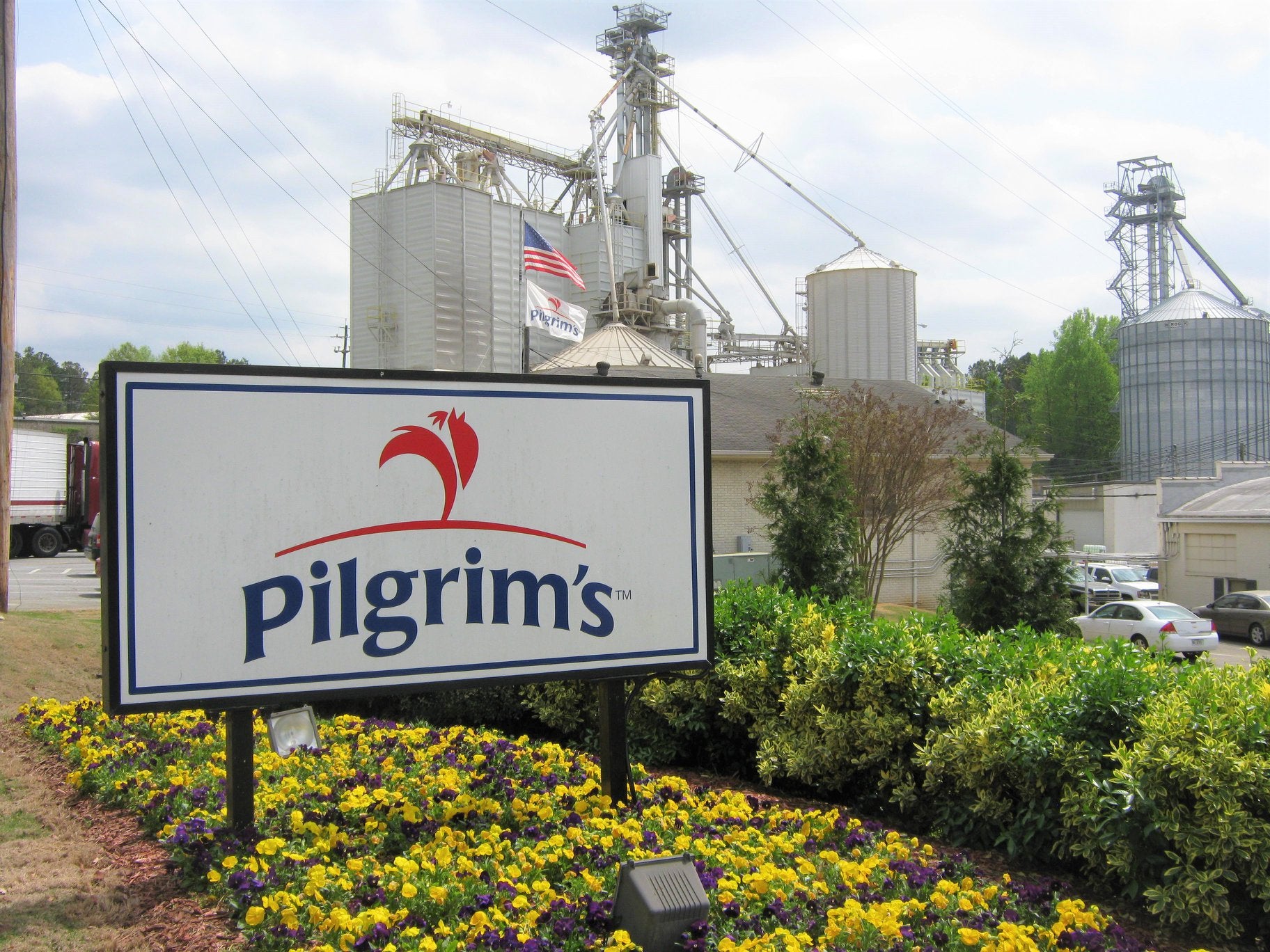
Pilgrim’s Pride, the US poultry and prepared-foods business majority-owned by Brazil’s JBS, plans to spend US$450m on capex projects over the next three years.
The investments will focus on the US, taking in an expansion of Pilgrim’s small bird facility in Athens, Georgia, along with the construction of a “protein conversion” plant for pet foods in the same state. The Nasdaq-listed firm also plans to build a prepared-foods factory to support growth in its Just Bare value-added chicken brand.

Discover B2B Marketing That Performs
Combine business intelligence and editorial excellence to reach engaged professionals across 36 leading media platforms.
Colorado-based Pilgrim’s inherited the Just Bare line in 2016 when it acquired GNP Company, along with production facilities in Cold Spring and Luverne in Minnesota, as well as Arcadia in Wisconsin. The business, in which meat giant JBS holds 80%, has since gone on to expand in M&A, particularly in Ireland and the UK.
“Given our market momentum and focus on profitable growth, we are announcing a number of new investments in the US,” Pilgrim’s said in its second-quarter results announcement last week, adding the funding will include “operational excellence improvements via automation”.
Pilgrim’s did not provide a precise location for the new prepared-foods plant, other than to say it will be located in “south-east USA to cultivate our branded growth, further diversifying our portfolio”.
It added: “Taken together, these investments will simultaneously enable sufficient capacity for top-line growth with our key customers, enhance operating margins, create value for our shareholders, and provide opportunities for a better future for our team members.”

US Tariffs are shifting - will you react or anticipate?
Don’t let policy changes catch you off guard. Stay proactive with real-time data and expert analysis.
By GlobalDataCFO Matt Galvanoni provided further colour on a follow-up call with analysts: “Our current estimates indicate these investments will total approximately $450m over the next three years. As a reminder, during the earnings call in February, I stated that capex for 2022 would be between $410m and $430m. We anticipate incremental spend in 2022 associated with these new projects to be approximately $150m.”
Galvanoni clarified the projects are expected to start “coming into play” in the next 12 to 18 months.
Pilgrim’s CEO Fabio Sandri added on the analyst call: “We are confident that these investments will drive further growth for our business, while also enhancing our key customer partnerships, further diversifying our portfolio and supporting operational excellence.
“As a result, we can generate stronger, more consistent sales growth and margin expansion that accelerate our business momentum and creates further competitive advantage for our business.”
The expansion to the Athens plant will increase small bird capacity by 20-30%, Sandri said, noting “it’s not a significant growth but it’s very important” for a “specific key customer”.
Pilgrim’s extended its presence in the UK last year with the acquisition of meat processor Randall Parker Foods. Months earlier, the company bought a clutch of UK assets from Ireland’s Kerry Group, including the firm’s meats and meals operations.
It had also previously bought the UK pork group Tulip from Danish Crown and meat processor Moy Park.
For the second quarter to 26 June, Pilgrim’s posted sales of $4.6bn, an increase of 27.3% from a year earlier, including 96% growth from both its namesake brand and Just Bare.
Adjusted EBITDA rose 67.7% to $623.3m, with the associated margin up 3.3 percentage points to 13.5%. The business also turned to a profit of $362m, compared to a net loss of $166m for the corresponding period.
Over the first half, sales climbed 28.4% to $8.8bn. Adjusted EBITDA rose 79.9% to $1.1bn, with the margin up 3.6 points at 12.7%. Net income also reverted, coming in at a $642.5m profit versus a $66m loss.





